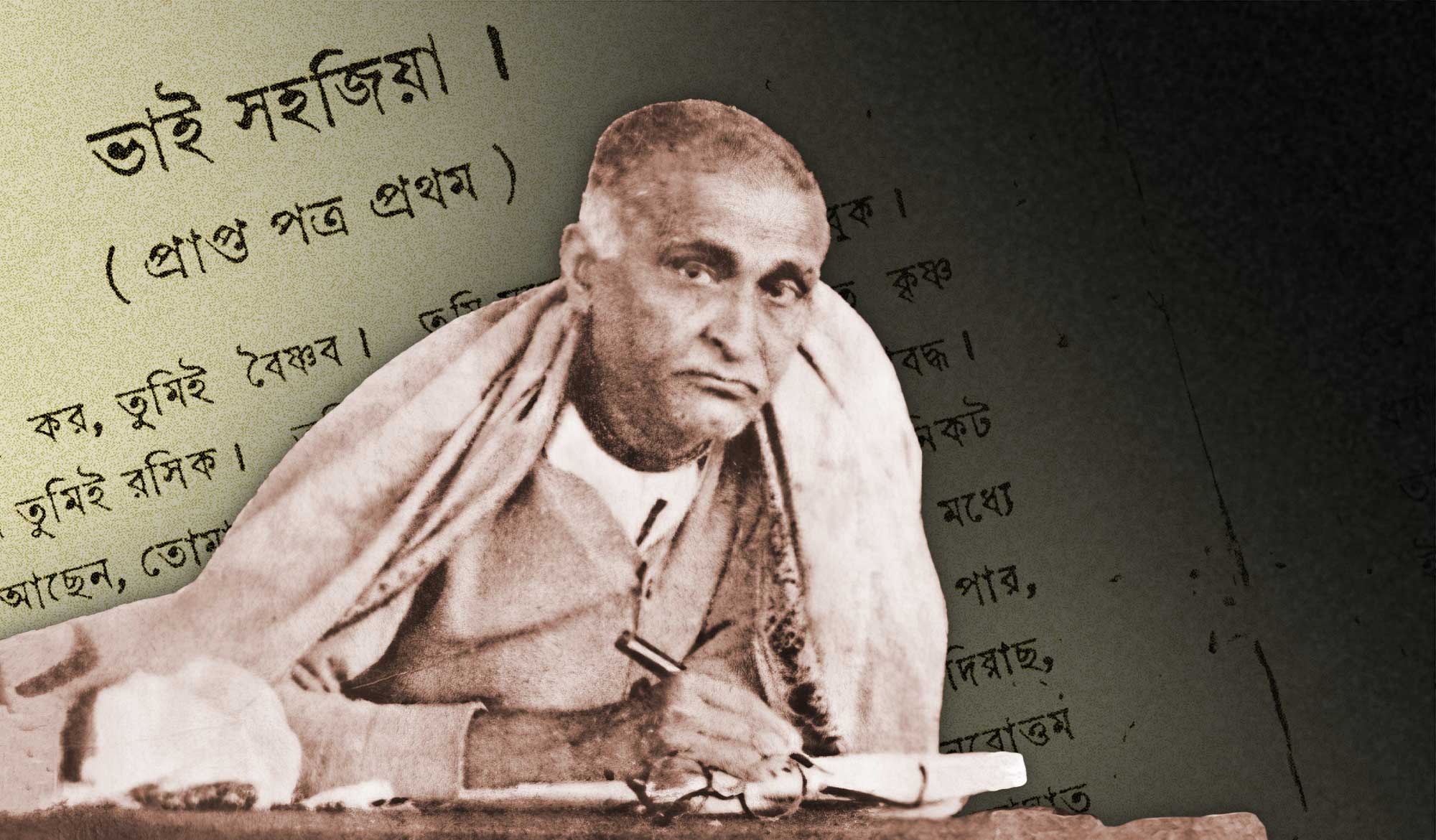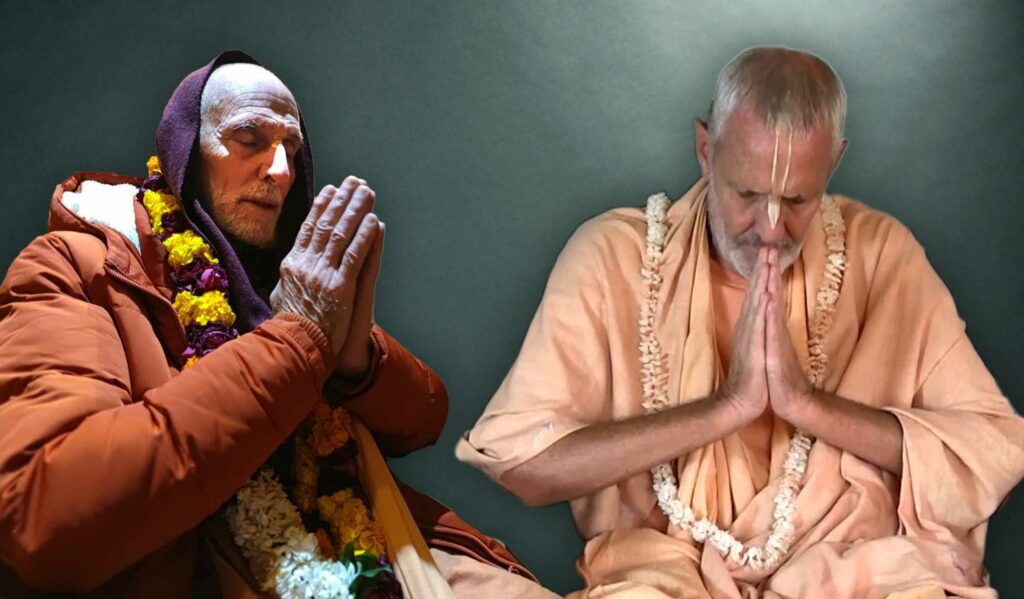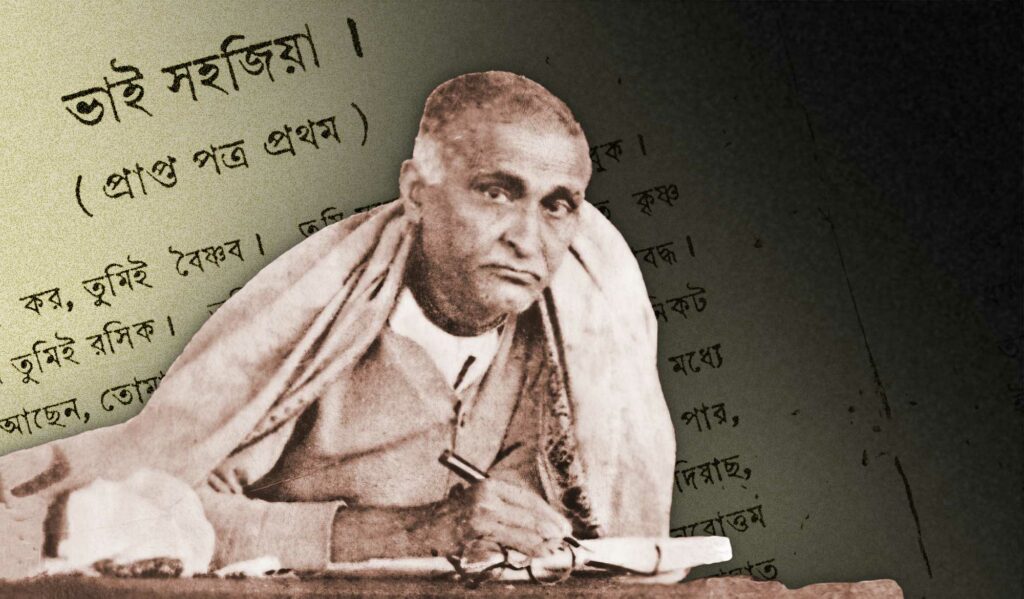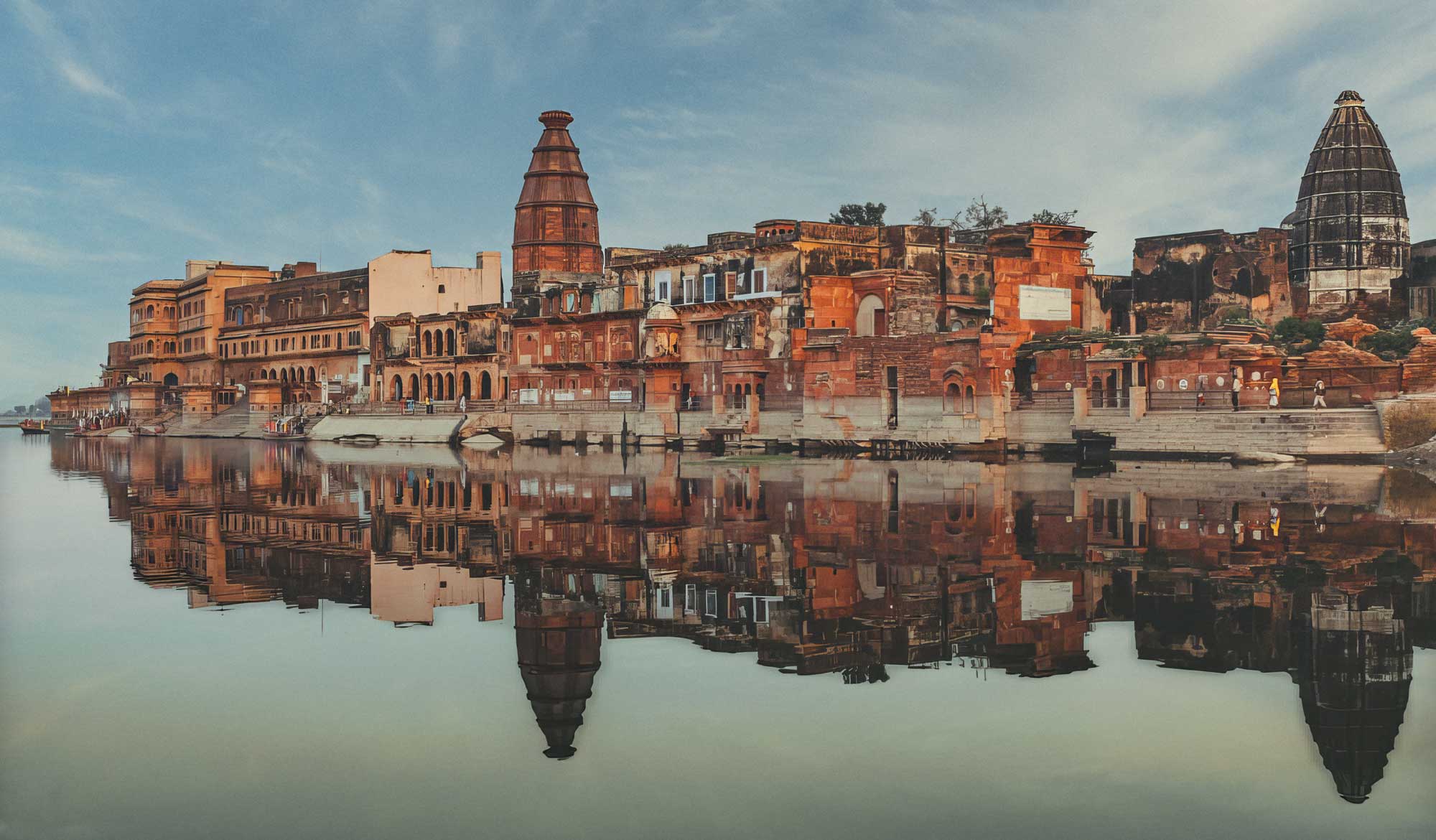Overview
This is the first part of a famous two-part article 'Bhāi Sahajiyā' written by Śrīla Bhaktisiddhānta Sarasvatī Ṭhākura Prabhupāda which was first published in Sajjana Toṣaṇī, Vol. 19, Issue 11 in 1917. The article addresses the general sahajiyā community and their various kinds of deviancy, but Sarasvatī Ṭhākura writes it in the form of a letter to an individual whom he calls 'bhāi sahajiyā' (‘brother sahajiyā’). Sarasvatī Ṭhākura’s exposé of the peddlers of so-called ‘rasa’ is filled with scathing sarcasm and acts as a warning against cheap spiritual pursuits.
(You can find the second part of this article here: 🔗 ‘Bhāi Sahajiyā Part Two’ )
You think that only you are a Vaiṣṇava! You think that only you are a bhāvuka (one who is overwhelmed with divine emotions)! You think that only you are a rasika (a relisher of divine mellows)! You think that Kṛṣṇa is imprisoned within your material intellect and kṛṣṇa-bhakti-rasa is confined to your mundane enjoying mentality. You can create your own ‘Kṛṣṇa,’ and you are extremely expert in kṛṣṇa-bhakti. Śrī Rūpa and Raghunātha can learn bhakti from you. Amongst all the connoisseurs of mundane rasa, you are indeed the best of all. Due to your specific anarthas, only you can make transcendental kṛṣṇa-līlā become mundane. You have defeated Jayadeva and Caṇḍīdāsa by the power of your wit. Haridāsa Ṭhākura, who is devoted to the Holy Name, is simply like a puppet for you to play with. Ṭhākura Narottama was unable to understand your wit and made obstructions to your fame. The cult of Nava-rasikas * (1), who are engrossed in mundane enjoyment, are your patrons. You have all monopolized spiritual perfection by singing and dancing, and you carry baskets of mundane rasa upon your heads. You are indeed most wealthy with such treasure. Do not let the words of the akiñcanas, the impoverished devotees, enter your ears!
Brother sahajiyā! Being greedy for vraja–bhāva, you have flagrantly displayed all of your innermost feelings externally – since everything has been displayed on the outside, nothing remains within you! You have made this body, which is simply food for dogs and jackals, into that of a transcendental daughter of a cowherd man. Nourishing puruṣa-bhāva (masculinity) within your heart, you have externally disguised yourself as a sakhī by wearing a nose-ring.
You have learned how to wear a sari and blouse tucked tightly around your body. Instead of wearing a transcendental garland of forest flowers, you decorate yourself with golden ornaments, searching for an amorous lover (nāgara). Pure Vaiṣṇavas can never understand your bhāva. It is even unknown to the intellect of those devotees who are antaraṅga-bhaktas, eternal associates of the Lord. I feel ashamed to say it, but from the way that you speak, all the natural symptoms of a female are displayed by your gross body. Internally there is only masculinity – externally, you dress as a woman. Is this the intrinsic nature of a rasika? Externally Mahāprabhu was male, yet internally He cultivated the mood and consciousness of a gopī-maidservant of Kṛṣṇa. And, brother sahajiyā, you have the mood of a man within and the body of a man, yet externally you dress as a gopī. Your behaviour is the exact opposite of what Mahāprabhu has instructed. The Lord said that gopī–bhāva is the inherent nature of the ātmā – you have understood that gopī–bhāva is the inherent nature of the body! Mahāprabhu said:
antara niṣṭhā kara bāhye loka vyavahāra
Maintain your conviction internally and externally behave like an ordinary man. (Caitanya-caritāmṛta, Madhya-līlā 16.239).
But, ‘devotee of the Lord,’ you have turned the meaning of this upside down in order to engage in mundane enjoyment. Yet you can always say, “Well, this is the age of Kali!” Even if you behave in the opposite manner to what the Lord says, externally you can still show yourself to be His obedient follower!
The Lord is the Supreme Controller, the jīva is controlled. Therefore, the jīva’s conduct should be the exact opposite to that of the Lord. Is Kṛṣṇa made of material elements like you, that upon seeing you wearing the mundane dress of a sakhī, He will abandon that which is transcendental and earnestly desire to hold your hand? In which way will Kṛṣṇa become excited to perform vastra-haraṇa, the pastime of stealing the gopīs’s clothes, by stealing the woman’s clothes that cover your male body? If, by your good fortune, Kṛṣṇa ever did decide to steal your clothes, then your hypocrisy would soon be revealed! If one becomes a follower of Śrī Rūpa and performs aprākṛta-mānasa-sevā (transcendental service with a purified mind) within the heart, with a suitable perfected body that is fit to serve Kṛṣṇa in mānasa-sevā, then at the time of attaining vastu-siddhi *(2), that hateful material body would collapse. O brother sahajiyā! Why do you consider this body, which is different to the ātmā, to be the self, dressing it in the garb of a sakhī? After understanding your intentions, we also are not attracted to you either!
Brother sahajiyā! Why did you attempt to gain material happiness by using Kṛṣṇa’s name, qualities, form and pastimes, dragging them down to the level of your own mundane nature? O brother! In the name of Deity worship, why did you stuff the bag of your material body by chewing, sucking, licking and drinking eatables? O brother, why did you go to the doors of the wealthy under the pretext of ‘honouring’ kṛṣṇa-prasāda to satisfy your material senses? O brother, why did you use the Lord’s money, which was meant for His service, for your own enjoyment? O brother, why did you spend the money of the Lord to make anklets for ordinary women? O brother, dressed as a guru, why did you send your disciples to hell? O brother, rejecting the instructions of the spiritual master, why did you allow your mind to become engrossed in mundane enjoyment? O brother, why have you made a cult with so many disciples? We see you in various circumstances – sometimes as the topmost follower of rāgānuga–bhakti, you are ringing a bell like a kaniṣṭha-adhikārī. *(3) Sometimes while smelling the fragrance of a flower your hair stands on end. Sometimes to shut people’s mouths, you give in charity. *(4) Brother, why put yoghurt in a goat’s mouth?*(5) Please help us understand – by doing all these activities what will be the result for you? Should I understand from this that you have opened a shop in order to busy yourself in deceiving people?
Brother sahajiyā! You are certainly teaching mundane debauchery to all debauchees. To those that are restrained, you will surely make them addicted to illicit activities. Is it proper to make them stray from the path of dharma? Kṛṣṇa is the supreme possessor of rasa and is situated in transcendental Vṛndāvana. Thinking that He is trapped within your perception which is polluted by the desire for mundane enjoyment, is merely your lunacy. You use mundane pictures to illustrate the pastimes of Gopī-jana-vallabha, the Lord of the gopīs – this is nothing but the result of your offences. Kṛṣṇa is the embodiment of transcendental pastimes and appearing in this material world, which is a perverted reflection, He establishes true dharma – and you are preparing yourself to be a fit recipient for punishment by the penal code! Why do you pretend to take shelter of aprākṛta-tattva (transcendental reality) when in actuality, you are in the midst of the most contemptible type of mundane enjoyment known to the jīvas? Why do you drown the jīvas in a quagmire of sinful activities by misunderstanding the truth about Kṛṣṇa’s mellows as a paramour (parakiyā-tattva)? I know that it is only because you are obsessed in achieving material desires, that hari-prema – which is rare for even Nārada and others – is being made into a haven of sinfulness by you. I know that your cult has many members. Nobody in your sect will lag behind in assisting you with your sinful acts. This condition is due to your aversion to Hari. I feel pity for you and pray to the feet of Gopī-jana-vallabha that you will eventually attain some proper intelligence.
Brother sahajiyā! Your intrinsic nature is not the pure and simple nature of Rāmānanda Rāya. Your nature will never be that which emanates from the hearts of the gopīs. Uddhava Mahāśaya who is the best of sādhakas, Lakṣmī Devī, the personified Vedas and the ṛṣis living in Daṇḍakāraṇya are constantly eager for the supremely delightful and soothing shelter of Vṛṣabhānu-nandinī. Having attained Her mercy, when will you serve the dust of Her feet with aprākṛta-rasa as the rūpānuga devotees do? Until the time that Kṛṣṇa-candra, the emporium of rasa, and the Daughter of Vṛṣabhānu make you a transcendental maidservant amongst Their intimate servitors who are comprised of devotional mellows, you have no eligibility for aprākṛta-līlā. You can never become qualified to serve the mellows of He who is the Emporium of rasa with a mundane mentality full of gross enjoyment.
Brother sahajiyā! Being unable to comprehend aprākṛta-vipralambha-rasa, the mellows of divine separation, you cultivate the adoration of prākṛta-sambhoga, mundane union. It is the prākṛta-sambhoga-rasa which makes you averse to Hari. When you actually take shelter at the feet of Vṛṣabhānu-nandinī, the pleasures of your material senses will be completely incinerated. Discarding the burnt ashes of material rasas underneath the mental tree of your mundane pride, chant hari-nāma without false prestige. Do not mix aprākṛta-rasa with prākṛta-rasa. May the aprākṛta-vipralambha-rasa of Śrī Gaurasundara annihilate your materialistic comfort and happiness. Totally rejecting the association of prākṛta-sahajiyās, may you become a pure devotee. Awaken aprākṛta-vipralambha-rasa by taking shelter of the feet of the rūpānugas – by so doing, when material prestige arises, it will not be able to drag you to hell. Brother! The rūpānugas can never ever have any connection with a prākṛta-sahajiyā like you. However, the connection that you think you have made is comparable to a dwarf who tries to catch the moon. As long as you are cheated by your prākṛta-sambhoga-rasa, then you will believe aprākṛta-tattva to be the subject of your material enjoyment. This will never be service to Kṛṣṇa. If somebody playing the dramatic role of Kṛṣṇa actually became Kṛṣṇa, then the transcendental gopīs would be in the palm of his hand. If a sense-enjoyer who dresses as a gopī in a drama could actually serve Kṛṣṇa, then his gopī-bhāva would not cease even after his performance. If the accumulation of the heart-feelings of one dressed as a gopī at the time of a dramatic performance became an amalgamation of the ingredients of sthayī-bhāva (permanent transcendental emotions), then he would eternally be a rasika in antaraṅga-rasa (internal mellows). Transcendental separation (aprākṛta-vipralambha) cannot be understood by serving worldly mellows with a worldly proclivity guided by a worldly consciousness. Brother sahajiyā! Leave your worldly consciousness and certainly the rūpānugas will bestow upon you their embrace of divine love. Even if you are carried on the heads of a group of prancing prākṛta-sahajiyās, still you will not be able to give up your mundane consciousness which is full of enjoyment. Serve perpetually in spiritual consciousness, with a spiritual body, with spiritual mellows, being a spiritual pālya-dāsī *(6). Only in this way will the vessel of your heart overflow with spiritual rasa.
Brother sahajiyā! You think that eternal brahmacārīs such as Śrī Jīva Gosvāmī, Śrī Narottama Ṭhākura etc. who did not enter into worldly life, were not able to comprehend jaḍa-rasa, material emotions, like you – thus they were never able to become real rasikas. Becoming such an expert, you openly and privately advertise to the public the aprākṛta-rasa of Rādhā-Kṛṣṇa which is difficult to obtain even by Śiva, Brahmā etc. Brother, what else can I say to you? I bless you – be busy with your gross satisfaction, and teach the same to the sahajiyā community. It is not necessary for you to give up worldly sentiments and become dry by serving aprākṛta-rasa. Entrust the burden of serving aprākṛta-rasa to the rūpānugas.
Brother sahajiyā! Gesticulating by swinging your arms around, you go and sing to all and sundry about the secrets of Rāi-Kānu’s playful pastimes! *(7) Listening to your singing, how many drunkards, how many debauchees, will consider aprākṛta-rasa to be contemptible gross sentiments? Being such a master, you cause fountains of prākṛta-rasa to gush forth in town squares, market places and meadows, with the help of mṛdaṅga and karatālas. In your company, infants who still live on breast-milk, and youths who have yet to grow facial hair, will become scholars of mundane rasa, and in the name of singing songs about govinda-līlā, they will not sit and read Vidyā-sundara and Rasa Mañjarī! *(8) Hearing Mahāprabhu’s song, yaḥ kaumāra haraḥ *(9), young men and women with material bodies, should not become maddened due to their own mundane propensities. It may seem morally correct when, echoing today’s society, both father and son will sit together in a drawing room looking at pictures of naked women, thinking that they can hear songs of Rāi-Kānu with the material ear, and thinking that by increasing the families of the sahajiyās, the Vaiṣṇava community is expanding. Advertising your ‘bhajana’, you beat a big drum for the sake of gaining respect and singing rasika songs. Is this proper, brother?
Brother sahajiyā! Your eyes continuously shed tears, your nose constantly leaks long streams of mucus, before beating the mṛdaṅga you show goose-pimples; swooning in ‘prema’, you always keep your hands on the shoulders of others to support yourself, your head is decorated with the foot-dust of so many women, you are extremely expert in voicing your opinions that women are such great devotees etc. It is your nature to feign unconsciousness while doing kīrtana. You consider yourself to be the rasikendra–mukuṭa–mauli (the jewel in the crown of the monarchs of rasa), the rāgānugīya-siddhāgraganya-rase-ḍagamaga (the best of the perfected followers of rāgānuga-bhakti who is overflowing with supreme rasa) etc. – but you know that you are absorbed in mundane sentiments! Devotees and non-devotees alike – everyone can understand your cunningness! You are a go-dāsa (servant of the senses) and you want to be a gosvāmī (master of the senses); devoid of jāta–rati (blossoming attachment to Kṛṣṇa) you want to be a rasika. Being unable to overcome anarthas at the stage of sādhana, you wish to be a premika while pretending to be a perfected soul. You like to hear songs from the lips of your deva-dāsīs; you have no objection to hear the ‘glories of Hari’ from the mouths of professional female dancers; you are fully immersed in the rasika songs of professional singers and their stories, which are full of rasābhāsa (contradictory mellows).
I know you well, but I do not know you as a Vaiṣṇava.
Your witless brother –
‘Rūpānuga’
*******
FOOTNOTES
*(1) The Nava-rasikas were a group of Bengali sahajiyās who claimed to follow the nine relishers of rasa (nava–rasikas) – Jayadeva, Vidyāpati, Caṇḍidāsa, Rājakiṇī, Bilvamaṅgala Ṭhākura, Rāya Rāmānanda, Svarūpa Damodāra, Rūpa Gosvāmī and Raghunātha Dāsa. They consider each of these rasikas to represent one of the nine material elements.
*(2) Vastu-siddhi is the full attainment of one’s spiritual nature.
*(3) This refers to Deity worship, which is considered to be a devotional activity for neophyte devotees (kaniṣṭha-adhikārīs).
*(4) In other words, when people see him living extravagantly, he uses some money to give charity to the poor in order to keep his critics quiet.
*(5) When a goat is happy eating grass, why bother feeding it yoghurt? i.e, why engage in useless activities?
*(6) Pālya-dāsī – a maidservant, wholly dependent on and protected by Kṛṣṇa.
*(7) Rāi-Kānu are the nicknames of Rādhā and Kṛṣṇa.
*(8) Vidya-sundara is a medieval Bengali love story concerning a prince and a princess. Rasa Mañjarī is Bharata-candra Raya’s Bengali rendering of a Maithili poem dramatizing the love of Rādhā and Kṛṣṇa.
*(9)
yaḥ kaumāra-haraḥ sa eva hi varas tā eva caitra-kṣapās
te conmīlita-mālatī-surabhayaḥ prauḍhāḥ kadambānilāḥ
sā caivāsmi tathāpi tatra surata-vyāpāra-līlā-vidhau
revā-rodhasi vetasī-taru-tale cetaḥ samutkaṇṭhate
He who stole my heart during my youth is verily he who is here today as my lover. And these are the same nights in the month of Caitra, when the fragrant breezes from the kadamba grove are heavy with the scent of newly blossoming jasmine. And I too am the same person – yet still my heart yearns for the dalliances of love that we enjoyed amidst the vetasī trees on the banks of the river Revā. (Caitanya-caritāmṛta. Madhya-līlā 13.121)
Translated from Bengali into English by Swami B.V. Giri
Related Articles and Books
- 📖 Prākṛta-rasa Śata-dūṣaṇī – One Hundred Condemnations of Material Rasa (Book)
- 📖 Prākṛta-rasa Āraṇya Chedinī: Cutting the Jungle of Misconception (Book)
- 📖 The Authorized Sri Caitanya Saraswata Parampara (Book)
- Bhāi Sahajiyā (Part One) by Śrīla Bhaktisiddhānta Sarasvatī Ṭhākura
- Bhāi Sahajiyā (Part Two) by Śrīla Bhaktisiddhānta Sarasvatī Ṭhākura
- Vikrīḍitaṁ vraja-vadhūbhir by Śrīla Bhaktisiddhānta Sarasvatī Ṭhākura
- Ujjvala Nīlamaṇi by Śrīla Bhakti Rakṣaka Śrīdhara Deva Gosvāmī
- Fools Rush In Where Angels Fear to Tread by Śrīla Bhakti Rakṣaka Śrīdhara Deva Gosvāmī
- The Internal Meaning of Ratha Yātrā and Nāma Bhajana by Śrīla Bhakti Pramoda Purī Gosvāmī
- The Rāga-Patha is Above All by Śrīla Bhakti Gaurava Narasiṅgha Mahārāja
- Gītā-Govinda of Jayadeva Gosvāmī by Śrīla Bhakti Gaurava Narasiṅgha Mahārāja
- Gīta Govinda Revisited by Śrīla Bhakti Gaurava Narasiṅgha Mahārāja
- The Proof of Your Devotion by Śrīla Bhakti Gaurava Narasiṅgha Mahārāja
- Vraja Bhāva by Śrīla Bhakti Gaurava Narasiṅgha Mahārāja
- Anartha Nivṛtti by Śrīla Bhakti Gaurava Narasiṅgha Mahārāja
- Hearing From a Rāsikācārya by Śrīla Bhakti Gaurava Narasiṅgha Mahārāja
- The Standard for Higher Līlā Swami B.V. Giri & Swami B.B. Viṣṇu
- Conquering Anarthas by Dhīralalitā Dāsī
Further Reading
Pilgrimage with Swami Narasiṅgha – Part 7: Keśī Ghāṭa
Continuing with our pilgrimage series, this week Śrīla Narasiṅgha Mahārāja takes us to Keśī Ghāṭā where he tells us about Madhumaṅgala’s meeting with the Keśī demon, what Keśī represents, and how Śrīla Prabhupāda almost acquired Keśī Ghāṭa. Mahārāja also narrates his own experience. This article has been adapted from a number of talks and articles by Narasiṅgha Mahārāja.
Prema Dhāma Deva Stotram with the Narasiṅgha Sevaka Commentary – Verses 61-65
In verses 61 to 65 of 'Prema Dhāma Deva Stotram', Śrīla Śrīdhara Mahārāja narrates the pastime of Śrī Caitanya at Caṭaka Parvata In Purī and explains how the scriptures produced by Brahmā and Śiva are ultimately searching for the personality of Mahāprabhu who is merciful too all jīvas, no matter what their social position.
Prabhupāda Śrīla Sarasvatī Ṭhākura’s Visit to Ayodhyā
With the forthcoming observance of Śrī Rāma Navamī, we present 'Prabhupāda Śrīla Sarasvatī Ṭhākura’s Visit to Ayodhyā' written by Śrīla Bhaktisiddhānta Sarasvatī Ṭhākura Prabhupāda from The Gaudīyā magazine, Vol 3. Issue 21/ In December 1924, after visiting Benares and Prāyāga, Sarasvatī Ṭhākura visited the birth-site of Śrī Rāmācandra in Ayodhyā.
Śaraṇāgati – The Only Path to Auspiciousness
In this article, 'Śaraṇāgati - The Only Path to Auspiciousness', Dhīra Lalitā Dāsī analyses the process of śaraṇāgati (surrender) beginning with śraddhā (faith). She also discusses the role of śāstra and the Vaiṣṇava in connection with surrender.
Pilgrimage with Swami Narasiṅgha – Part 7: Keśī Ghāṭa
Continuing with our pilgrimage series, this week Śrīla Narasiṅgha Mahārāja takes us to Keśī Ghāṭā where he tells us about Madhumaṅgala’s meeting with the Keśī demon, what Keśī represents, and how Śrīla Prabhupāda almost acquired Keśī Ghāṭa. Mahārāja also narrates his own experience. This article has been adapted from a number of talks and articles by Narasiṅgha Mahārāja.
Prema Dhāma Deva Stotram with the Narasiṅgha Sevaka Commentary – Verses 61-65
In verses 61 to 65 of 'Prema Dhāma Deva Stotram', Śrīla Śrīdhara Mahārāja narrates the pastime of Śrī Caitanya at Caṭaka Parvata In Purī and explains how the scriptures produced by Brahmā and Śiva are ultimately searching for the personality of Mahāprabhu who is merciful too all jīvas, no matter what their social position.
Prabhupāda Śrīla Sarasvatī Ṭhākura’s Visit to Ayodhyā
With the forthcoming observance of Śrī Rāma Navamī, we present 'Prabhupāda Śrīla Sarasvatī Ṭhākura’s Visit to Ayodhyā' written by Śrīla Bhaktisiddhānta Sarasvatī Ṭhākura Prabhupāda from The Gaudīyā magazine, Vol 3. Issue 21/ In December 1924, after visiting Benares and Prāyāga, Sarasvatī Ṭhākura visited the birth-site of Śrī Rāmācandra in Ayodhyā.
Śaraṇāgati – The Only Path to Auspiciousness
In this article, 'Śaraṇāgati - The Only Path to Auspiciousness', Dhīra Lalitā Dāsī analyses the process of śaraṇāgati (surrender) beginning with śraddhā (faith). She also discusses the role of śāstra and the Vaiṣṇava in connection with surrender.








